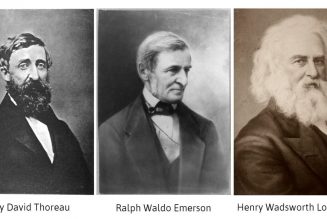
I think the Apostle Paul should’ve been worried.
In 62 AD (or so), Paul was languishing under “house arrest,” awaiting a trial to determine whether or not he’d be killed for his faith in Christ. The deranged Emperor Nero was to be his judge—a man who’d already executed his own mother and who’d very soon orchestrate the cruelest persecution of Christians in history. (In fact, Nero did indeed order Paul’s death in 67 AD).
Imprisoned with heavy chains manacling him to a Roman soldier, Paul wrote to Christians in Philippi where, years prior, that city’s leaders had violently evicted him (see Acts 16:12-38). They’d persecuted Jesus-followers ever since. Into these dire circumstances, Paul gave his friends this absurd advice:
“Do not be anxious about anything…” (Philippians 4:6 NIV)
How could Paul say that—and actually mean it? The answer lies in understanding the true nature of worry, and the true nature of prayer.
The True Meaning of Worry and Anxiety
Anxiety has five main characteristics.
1. Mental health expert, Suzanne Jessee, explains in her book, Escape Anxiety:
“A friend once told me, ‘Worry is praying for what you don’t want to happen.’ We could also say that worry is a form of meditation. Any time we have focused concentration on something specific, it is a kind of meditation and/or hypnosis. So be careful what you meditate on!”
2. Our worried thoughts are defined by emotional perception. Noted author Stephen Covey observes in The 7 Habits of Highly Effective People, “We see the world not as it is, but as we are.” Thus if we begin to feel fearful, our world becomes fearful; when we feel threatened—whether that threat is real or imagined our world becomes threatening. So we worry.
3. Worry is a cognitive conflict of opposing desires. When the Apostle Paul spoke of being “anxious” in Philippians 4:6, the Greek word he used meant “to be pulled in different directions.” As theologian Warren Wiersbe commented, “Our hopes pull us in one direction; our fears pull us in the opposite direction; and we are pulled apart!”
4 & 5. Worry is always outcome-based, and always stressed about tomorrow. It fixates our thoughts on unrealized results—and how those future outcomes can disappoint.
The True Meaning of Prayer
Looking at five characteristics above, I begin to understand why Paul’s practical instruction in Philippians 4:6 makes so much sense.
“Do not be anxious about anything, but in every situation, by prayer and petition, with thanksgiving, present your requests to God.”
You see, the true nature of prayer, accompanied by petition and thanksgiving, is this: It reorients our thinking away from the temporal and toward the eternal.
Do you see what Paul has done here? With this simple advice he renders impotent the power of worry over the human soul! A Philippians 4:6 prayer is not simply a recitation of fears. This kind of praying instinctively redirects within us the natural meditative impulse. It turns our perceptions and desires away from fearful future outcomes, focusing us instead on the unifying truth that God is sufficient, even when the circumstances of this life are not.
Does that mean we’ll never face difficulty or even death? Of course not. But it does mean that regardless of the outcome, in the midst of any awful circumstance, we can connect our minds with Christ’s—supernaturally, intimately—and thus redirects our limited, temporal thinking to align with His true, eternal perspective. (1)
This is an astonishing gift. And it includes a shockingly-generous consequence (Philippians 4:7; emphasis mine):
“And the peace of God, which transcends all understanding, will guard your hearts and your minds in Christ Jesus.”
Wow.
What does it look like to give your anxieties to God in prayer?
So, if this is the true nature of worry, and also the true nature of prayer, what does that mean for us?
Giving our worry and problems to God in prayer is, in the simplest sense, an honest, meditative conversation with our Father whereby we attempt to transfer responsibility for desired outcomes out of our hands and into His. It’s a deliberate act of faith that trusts in who God is more than our perception of what He does or doesn’t do. That’s why, even when shackled to a Roman soldier, the Apostle Paul could write with such confidence: Do not be anxious about anything …
Now, here’s something to help you experience Philippians 4:6-7 for yourself. It’s a mental image my wife once gave me, so now I give you this gift as well:
One time I was emotionally locked up with worry over a fretful situation. Amy came to me and gently took hold of my wrist.
“Make a fist,” she instructed, “and hold out your hand, palm up.” Next she said, “Open the fingers of your fist. Spread them wide so that anything in your hand would spill through them like water.” After I’d done that, she said, “Now, that problem you’re worrying about? Picture it pouring through your fingers and into God’s great big hands. He’s got it. Regardless of what happens, it’s His problem now. It’s not yours to worry about anymore.”
Even as she was dying from cancer, there were moments she’d look up at me from the hospital bed and raise a chemo-shrunken fist. Then she’d smile and spread wide her fingers. Amy never had to say a word for me to hear her voice whisper reassurance into my heart, “God’s got this, regardless of what happens…”
And my girl was right.
“Do not be anxious about anything, but in every situation, by prayer and petition, with thanksgiving, present your requests to God. And the peace of God, which transcends all understanding, will guard your hearts and your minds in Christ Jesus…” (Philippians 4:6-7)
Notes:
1. Space prevents me from digging more deeply into this, so take a little time on your own to read all of Philippians 4:5-20 with the perspective of reorienting your thinking from the temporal to the eternal. If you’re like me, this exercise will help you very much.
Sources:
David Potter. Emperors of Rome (New York: Metro Books, 2007, 2011) 66-69.
Merrill C. Tenney. The Zondervan Pictorial Encyclopedia of the Bible, Volume 4 (Grand Rapids, MI: Zondervan, 1975, 1976) 651, 654.
Clinton E. Arnold. Zondervan Illustrated Bible Backgrounds Commentary, Volume 3 (Grand Rapids, MI: Zondervan, 2002) 346.
Suzanne Jessee. Escape Anxiety (New York: SelectBooks, 2015) 154.
Stephen R. Covey. The 7 Habits of Highly Effective People (New York: Free Press, 1989, 2004) 28.
Warren W. Wiersbe. The Bible Exposition Commentary: New Testament Volume 2 (Colorado Springs, CO: Victor, 1989, 2001) 94.
Mike Nappa is a big ol’ Bible Study Nerd, and an ongoing Bible commentary and theology writer for Christianity.com. He’s also a bestselling and award-winning Christian author with more than a million copies of his books sold worldwide. Learn more about Mikey at Nappaland.com and MikeNappa.com.
Photo Credit: Thinkstock/RJohn97









